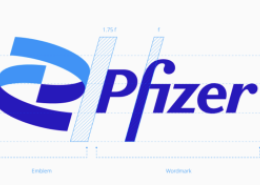Pfizer Discontinues Phase 3 Trial of Sutent® in Advanced Hepatocellular Carcinoma
(BUSINESS WIRE)--Pfizer Inc. announced today the discontinuation of the SUN 1170 Phase 3 open-label study of Sutent(r) (sunitinib malate) in advanced hepatocellular carcinoma (HCC), or liver cancer. Following a review by the independent Data Monitoring Committee (DMC), the study was discontinued based on a higher incidence of serious adverse events in the sunitinib arm compared to the sorafenib arm and the fact that sunitinib did not meet the criteria to demonstrate that it was either superior or non-inferior to sorafenib in the survival of patients with advanced hepatocellular cancer. No new or unexpected types of serious adverse events were observed in the SUN 1170 trial.
“There is a great need for effective new therapies for patients with advanced liver cancer. The disappointing outcome of this trial challenges all of us to work harder to understand the complex biology of this disease. The result of this trial in hepatocellular cancer patients does not diminish our confidence in Sutent for the treatment of patients with renal cell cancer and GIST. We are committed to patient safety and are working with investigators to better understand these trial results and their implications for clinical practice,” said Dr. Mace Rothenberg, senior vice president of Clinical Development and Medical Affairs for Pfizer’s Oncology Business Unit. “We continue to study the potential role of Sutent in the treatment of various types of cancer in late-stage trials.”
The Company has notified SUN 1170 clinical investigators and all involved regulatory agencies of the discontinuation of SUN 1170. Investigators have been instructed to work with all of their patients in the SUN 1170 study on an individual basis to determine an appropriate course of action.
Sunitinib is currently approved for both gastrointestinal stromal tumors (GIST) after disease progression on or intolerance to imatinib mesylate, and advanced / metastatic renal cell carcinoma (RCC) based on efficacy and safety data from large, randomized Phase 3 clinical trials. To date, more than 82,000 patients have been treated with sunitinib in the clinical setting and in trials.
Sunitinib Clinical Research Program
Pfizer remains committed to the development program for sunitinib and is continuing to study its potential role in the treatment of various solid tumors including advanced non-small cell lung cancer, advanced castration-resistant prostate cancer and as adjuvant therapy for renal cell carcinoma, in Phase 3 trials. Pfizer also remains committed in continuing to investigate new treatment options for patients with hepatocellular carcinoma.
Healthcare professionals who are interested in learning more about Pfizer Oncology clinical trials that are open for enrollment can visit www.PfizerOncology.com/clinicaltrials. Patients with questions should contact their treating physician.
About Advanced Hepatocellular Carcinoma
Hepatocellular carcinoma (HCC) is the most common form of liver cancer, and is the fifth most frequently diagnosed cancer worldwide.i Many HCC patients are diagnosed at an advanced stage when traditional treatment options provide limited benefit.ii One of the most fatal cancers,iii the prognosis for HCC is generally poor, with a 5-year survival rate of less than 7 percent.ii Despite advances in treatment, effective therapy for advanced hepatocellular carcinoma remains a clinical challengein the oncology community, and additional treatment options are critically needed to address this continuing unmet need.
About SUTENT(®) (sunitinib malate)
Sutent is an oral multi-kinase inhibitor approved for the treatment of advanced RCC and GIST after disease progression on or intolerance to imatinib mesylate.
Sutent works by blocking multiple molecular targets implicated in the growth, proliferation and spread of cancer. Two important Sutent targets, vascular endothelial growth factor receptor (VEGFR) and platelet-derived growth factor receptor (PDGFR) are expressed by many types of solid tumors and are thought to play a crucial role in angiogenesis, the process by which tumors acquire blood vessels, oxygen and nutrients needed for growth. Sutent also inhibits other targets important to tumor growth, including KIT, FLT3 and RET.
Important Sutent(®) (sunitinib malate) Safety Information
Women of child bearing age who are (or become) pregnant during therapy should be informed of the potential for fetal harm while on Sutent.
Decreases in left ventricular ejection fraction (LVEF) to below the lower limit of normal (LLN) have been observed. Patients with concomitant cardiac conditions should be carefully monitored for clinical signs and symptoms of congestive heart failure.
Patients should be monitored for hypertension and treated as needed with standard antihypertensive therapy. Complete blood counts (CBCs) with platelet count and serum chemistries should be performed at the beginning of each treatment cycle for patients receiving treatment with Sutent.
The most common adverse reactions in advanced RCC and GIST clinical trials were fatigue, asthenia, diarrhea, nausea, mucositis/stomatitis, vomiting, dyspepsia, abdominal pain, constipation, hypertension, rash, hand-foot syndrome, skin discoloration, altered taste, anorexia and bleeding.
For more information on Sutent and Pfizer Oncology, including full prescribing information for Sutent (sunitinib malate), please visit www.pfizer.com [http://www.pfizer.com].
DISCLOSURE NOTICE: The information contained in this release is as of April 22, 2010. Pfizer assumes no obligation to update any forward-looking statements contained in this release as the result of new information or future events or developments.
This release contains forward-looking information about certain potential additional indications for Sutent, including their potential benefits, that involves substantial risks and uncertainties. Such risks and uncertainties include, among other things, the uncertainties inherent in research and development; decisions by regulatory authorities regarding whether and when to approve any supplemental drug applications that may be filed for additional indications for Sutent as well as their decisions regarding labeling and other matters that could affect the availability or commercial potential of any such additional indications; and competitive developments.
A further list and description of risks and uncertainties can be found in Pfizer’s Annual Report on Form 10-K for the fiscal year ended December 31, 2009 and in its reports on Form 10-Q and Form 8-K.
i El-Serag H, et al. ”Hepatocellular Carcinoma: Epidemiology and Molecular Carcinogenesis.” Gastroenterology, 2007; 132:2557-2576.
ii Kassahun W, et al. Liver Resection and Transplantation in the Management of Hepatocellular Carcinoma: A Review. Experimental and Clinical Transplantation. 2006; 2:549-58.
iii Garcia M, et al. “Global Cancer Facts & Figures, 2007.” American Cancer Society, 2007.
Pfizer Inc.
Chris Loder, 212-733-7897
or
Suzanne Harnett, 212-733-8009








